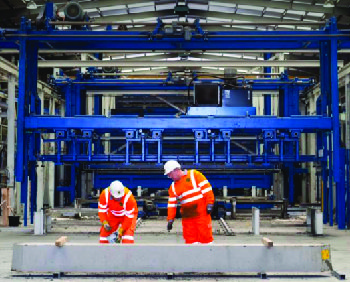Electricians are the lynchpin of the EV charge point rollout
Leading electrical trade body ECA has responded to this week’s EV infrastructure report by the SMMT, stressing the need for higher standards of training and competence in the electrotechnical workforce.
While ECA broadly supports calls for an electric vehicle charge point (EVCP) watchdog and a 5 per cent VAT regime for public charging, the body has stressed the point that there can be no EV charge point network in the UK without an upskilled electrical workforce – a point that is missing from the SMMT’s report.
ECA highlighted the ‘wild west’ training and qualifications landscape for professionals wanting to install EVCPs. Many available courses offer little in the way of competency and serve only to perpetuate low industry standards.
ECA Energy Solutions Advisor Luke Osborne said:
“We agree wholeheartedly with the SMMT’s statement that electric vehicle charging really should be as easy and uneventful as refuelling.
“But before consumers are put at the centre of charge point policy, regulation needs to catch up to ensure properly qualified electrical professionals are at the heart of the UK’s strategy to become a world leader in electric vehicle infrastructure.
“A robust framework of competencies and qualifications is sorely needed to ensure that anyone carrying out EVCP installation has a solid foundation of electrical competence.”
ECA Director of Workforce and Public Affairs Andrew Eldred said:
“There are up to 342,000 people already employed in the UK electrical sector who could readily be upskilled to meet the sharp rise in demand for charge points.
“But first, we need binding targets, not just for charge point provision but for skills provision and competency.
“Until then, we risk perpetuating a ‘wild west’ skills culture that will bring standards down, risk public safety and hold us back in the race to Net Zero Carbon.”
ECA has also urged government and local authorities to address the ‘postcode lottery’ of publicly available charge points and invest more equitably in the infrastructure rollout.
According to the Skills 4 Climate industry survey report, produced by a coalition of UK engineering services trade bodies including ECA, BESA, the REA and Solar Energy UK, almost 9 in 10 (88 per cent) of engineering services contractors say they support a green economic recovery form the pandemic.
However, almost half (48 per cent) said there is not sufficient industry training available to develop green skills.
Nearly three quarters (71 per cent) support reduced VAT on energy-related activity. Just under two thirds (57 per cent) want the Government to invest more heavily in technical education to help close the skills gap.
A Freedom of Information request made by ECA in late 2021 revealed that two thirds (66 per cent) of local authorities do not have plans in place for EV charge points. Half (48 per cent) of them did not currently operate any EV charge points. A further 60 per cent said they have no funds earmarked for future EV charging infrastructure.
This article originally appeared on the ECA website. It was published on 17 February 22.
--ECA
[edit] Related articles on Designing Buildings
- Boosting electric vehicle use.
- Drivers uncertain over electric vehicles.
- ECA and UKPN launch EV guide.
- ECA calls for petrol and diesel ban by 2030.
- Electric vehicles.
- Electric vehicle future.
- Electric vehicles in 2021.
- Joining up the clean technologies.
- Pop-up electric vehicle charge points.
- The UK's low-carbon future is increasingly electric.
- Glossary of electrical terms.
- Leading electrotechnical businesses win top industry awards.
Featured articles and news
Deputy editor of AT, Tim Fraser, discusses the newly formed society with its current chair, Chris Halligan MCIAT.
Barratt Lo-E passivhaus standard homes planned enmasse
With an initial 728 Lo-E homes across two sites and many more planned for the future.
Government urged to uphold Warm Homes commitment
ECA and industry bodies write to Government concerning its 13.2 billion Warm Homes manifesto commitment.
Places of Worship in Britain and Ireland, 1929-1990. Book review.
The emancipation of women in art.
CIOB Construction Manager of the Year 2025
Just one of the winners at the CIOB Awards 2025.
Call for independent National Grenfell oversight mechanism
MHCLG share findings of Building Safety Inquiry in letter to Secretary of State and Minister for Building Safety.
The Architectural Technology Awards
AT Awards now open for this the sixth decade of CIAT.
50th Golden anniversary ECA Edmundson awards
Deadline for submissions Friday 30 May 2025.
The benefits of precast, off-site foundation systems
Top ten benefits of this notable innovation.
Encouraging individuals to take action saving water at home, work, and in their communities.
Takes a community to support mental health and wellbeing
The why of becoming a Mental Health Instructor explained.
Mental health awareness week 13-18 May
The theme is communities, they can provide a sense of belonging, safety, support in hard times, and a sense purpose.
Mental health support on the rise but workers still struggling
CIOB Understanding Mental Health in the Built Environment 2025 shows.
Design and construction material libraries
Material, sample, product or detail libraries a key component of any architectural design practice.
Construction Products Reform Green Paper and Consultation
Still time to respond as consultation closes on 21 May 2025.
Resilient façade systems for smog reduction in Shanghai
A technical approach using computer simulation and analysis of solar radiation, wind patterns, and ventilation.

























